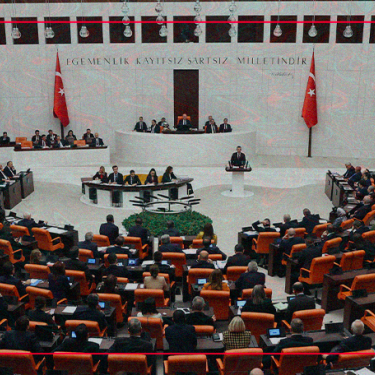RSF calls on Turkish government to amend Internet law after highest court rules that it violates right to information

The Turkish Constitutional Court has overturned several judicial decisions censoring journalistic content, considering that Article 9 of the Internet law constitutes a violation of press freedom. Reporters Without Borders (RSF) urges the Turkish government to comply with the high court's injunctions by reforming the controversial legislation.
As a result of a Constitutional Court ruling on 6 February condemning lower court censorship of journalistic content based on article 9, censored news media stories have begun reappearing online.
They include an item on the website Arti Gerçek (“Plus Truth”), whose censorship was overturned on 29 February by a judge in the capital, Ankara. In all, more than 30 recent judicial decisions have overturned censorship of online content in response to the Constitutional Court ruling.
In its 6 February ruling, the Constitutional Court condemned the censorship of hundreds of online content items, including 272 journalistic items published between 2014 and 2023 (such as news media stories, links to stories and social media posts) on the grounds that their basis – article 9 of Law 5651 regulating online publications – violates freedom of expression and press freedom.
Article 9 allows a judge to use “violation of the rights of the person” as grounds for censoring any online content indefinitely, including news media stories on public interest issues such as corruption.
In the Constitutional Court’s view, the article poses a “structural and recurrent” problem that violates freedom of expression and press freedom and deprives Internet users of “effective recourse” to assert their rights. The court began highlighting this problem in October 2021, when it gave the Turkish parliament a year to overhaul this 2007 law.
“It is beneficial that the Constitutional Court, which is itself in the government’s crosshairs because of its democratic positions, has so clearly condemned censorship of online journalism, censorship widely used during the past ten years to silence any criticism of the government. We call on the government to comply with the decisions of the country's highest court and to reform article 9 of the Internet law in order to provide legal safeguards that finally bring this intolerable, arbitrary censorship to an end.
Erol Onderoglu
RSF’s representative in Türkiye
According to Bianet.org, a news site that is RSF’s partner in Türkiye, online access to no fewer than 986 journalistic articles or links to articles was blocked in Türkiye in 2023.
An international delegation led by the International Press Institute (IPI) – a global network of media professionals who defend press freedom, of which RSF is a member – visited the Constitutional Court in Ankara in October 2023 to denounce these systematic restrictions on online information.
On 10 January, the Constitutional Court reiterated its call for a reform of article 9 of the Internet law and warned that it should stop being applied in October 2024. But, in response to the government’s failure to take any action, the court had no choice but to issue its 6 February ruling invalidating hundreds of censorship decisions.
While several judges have already complied with the Constitutional Court’s ruling, others are ignoring it. On 26 February, an Istanbul judge censored articles on the Cumhuriyet, Halk TV and Sözcü news sites about alleged corruption involving a senior official close to President Erdogan. His decision clearly flouted the Constitutional Court’s ruling on 6 February, and its earlier ruling on 24 October 2022, declaring such censorship to be illegal.
Türkiye is ranked 165th out of 180 countries in RSF's 2023 World Press Freedom Index.
